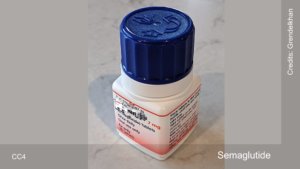The recent aftermath of Hurricane Helene has left a profound impact on the healthcare sector in the United States, primarily through a critical shortage of intravenous (IV) fluids. With Baxter International’s North Cove facility in North Carolina, the major supplier of IV fluids, temporarily shut down due to flooding, hospitals across the nation are grappling with supply constraints that threaten to disrupt patient care.
- The closure of Baxter International’s North Cove facility, responsible for 60% of U.S. IV fluid production, has led to a nationwide shortage following Hurricane Helene.
- Hospitals like Mass General Brigham and UVA Hospital are facing severe supply constraints, forcing them to postpone non-essential surgeries and conserve IV fluids.
- Baxter is coordinating with federal agencies and other manufacturers, such as B. Braun and ICU Medical, to increase IV fluid production and address the shortage.
- The American Hospital Association has urged the Biden Administration to declare a formal IV fluid shortage and invoke the Defense Production Act to boost production.
- Hospitals are implementing lessons from past crises and exploring new technologies and alternatives, such as oral rehydration solutions, to mitigate the impact of the shortage.
The North Cove facility accounts for 60% of the country’s IV fluid production. Following the hurricane, Baxter International announced that the plant remains closed as it assesses the damage. To address the shortage, Baxter is coordinating with federal agencies and leveraging its global manufacturing network to boost production and supply the U.S. market. As reported by sources like CNBC, other manufacturers such as B. Braun and ICU Medical are also stepping up, increasing production capacities at their facilities to meet the heightened demand.
Mass General Brigham, one of the affected healthcare systems, has been forced to adapt to receiving only 40% of its usual IV fluid shipments. Dr. Paul Biddinger, the system’s Chief Preparedness and Continuity Officer, highlighted the severity of the shortage and the measures being implemented to manage resources effectively. Hospitals like UVA Hospital have had to postpone non-essential surgeries and adopt conservation strategies to preserve their limited supplies.
The American Hospital Association (AHA) has issued an urgent appeal to the Biden Administration, requesting a formal declaration of the IV fluid shortage. The AHA also advocates for invoking the Defense Production Act, which would empower federal agencies to increase production and ensure an adequate supply for healthcare providers. This call to action underscores the critical nature of the situation and the need for a coordinated national response.
Healthcare providers are not new to managing supply chain disruptions. Lessons learned from previous crises, such as the 2017 shortage following Hurricane Maria, are being applied to minimize the impact on patient care. Hospitals are prioritizing essential surgeries, utilizing alternative hydration methods, and optimizing treatment protocols to conserve fluids.
The shortage has also spurred innovation within the healthcare sector. Hospitals are exploring new technologies and practices to enhance efficiency and reduce reliance on traditional IV fluid administration. This includes adopting advanced monitoring systems and exploring the use of oral rehydration solutions where clinically appropriate.
In conclusion, the IV fluid shortage crisis presents a formidable challenge for U.S. hospitals, necessitating swift and strategic action. Through collaboration among manufacturers, healthcare providers, and government agencies, the healthcare sector aims to overcome this hurdle and ensure that patient care remains uninterrupted. As recovery efforts progress, the focus will be on building a more resilient supply chain to withstand future disruptions.







Be First to Comment